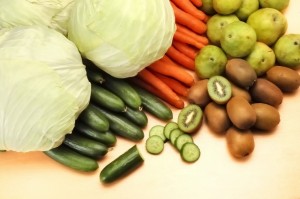 What if we ate like dogs? Well, I guess not what most dogs get fed, but the fact that they usually get food in the morning and the evening only. Very few snacks in between. On a good day maybe a couple of treats here and there for good behavior.
What if we ate like dogs? Well, I guess not what most dogs get fed, but the fact that they usually get food in the morning and the evening only. Very few snacks in between. On a good day maybe a couple of treats here and there for good behavior.
For most it would mean weight loss! Imagine not going to the fridge, or worse yet the convenience store and grabbing a little bag of something every time we think we feel hungry.
In some ways it would be great. In some ways it would suck considering the fact that eating whatever it is that is given to you is all you get, and it could in fact be the same dried up chunks of processed food everyday. You may not even be given a choice for nutritional value at all.
It is up to us to eat healthy and it is our responsibility to feed our dogs’ a healthy diet since they do not even have the capacity to make that choice.
Giving your dog vegetables as a treat or as a supplement to a holistic dog food kibble diet is actually important for a healthy dog diet. Vegetables are a much healthier choice for your dog than many of the commercial dog treats that are on the shelf nearest your reach as an impulse buy.
The marketing may be good in the pet store just like the companies that bring us our favorite human junk food but the effects on your dog’s life can impact bigger due to the fact your dog has a shorter time to live in the first place.
Why are vegetables & fruits important to a health dog diet?
Plant foods contain antioxidants that boost your dogs’ immune system. Antioxidants can prevent arthritis and fight against certain types of cancer. Eating raw food provides live enzymes which are good for the digestive tract. Raw food also carry “life force,” which can be transferred to the body, enhancing vitality and longevity. The body uses up some of its own “life force” or “enzyme potential” to compensate whenever cooked or processed foods are eaten.
The fruits and vegetables listed below are not a complete list. Keep in mind there are some human foods that are harmful to dogs such as grapes, raisins and onions. Make sure to do your research if you are planning on feeding fruits and vegetables not listed.
- Broccoli stalks
- Bananas
- Carrots
- Green beans
- Dark green lettuce leaves
- Beets
- Yams
- Asparagus spears
- Yogurt
- Peas
- Squash
- Apples
Your dog is most likely used to eating small pieces of kibble. It’s best to chop up fruits and vegetables in small chunks for easier digestion. For the mini size dogs, preparing these foods in a blender will help with the tiny intestinal tracts.
Beets can color your dog’s stools bright red, just like people when they eat beets so don’t be alarmed on that note.
Keeping your dogs weight under control is also important to note. The idea in supplementing your dogs’ diet with whole food does not mean “feed in addition to” the regular amount you feed. Adjust kibble portions to account for volume and calories you are giving in fruits and vegetables.
Note about the author: Jt Clough is a professional dog trainer who has studied and applied how to create a balanced life through calm dog training techniques with her long time commitment to health and fitness. Clough, a finisher of 9 Ironmans among many other fitness accomplishments, along with her life partner Gary Guller who has reached the summit of Mt. Everest, bring inspiration to others for developing a lifestyle that include health, fitness and a balanced way of being.
Photo credit: Suat Eman

Stumbled upon this accidently. A number of interesting thoughts – the importance of PROPER dog food is so often ignored and this article covers a lot of interest. It does really change their mood and training. Can’t wait to more. Am planning to write my thoughts down in a blog like this.
great article, I feed my dog all of the things listed above and he loves them, apples and bell peppers are his favorite! I seldom feed any pre manufactured treats and he gets grain-free kibble. My vet is always impressed with his overall condition. I also had a Border Collie who lived to 20. I often use a hand blender to make toppers from oatmeal, veggies, yogurt, sardines etc. in addition to kibble.